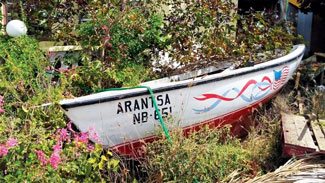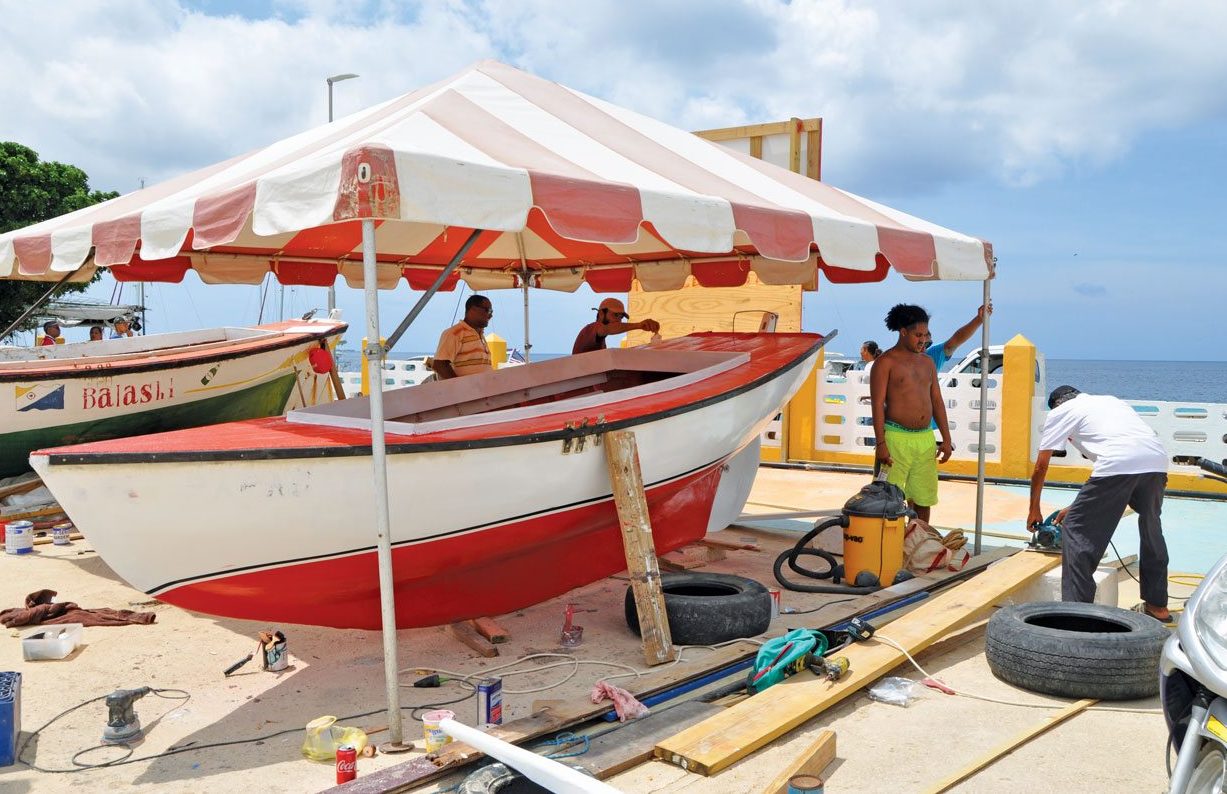The traditional sailing fishing boats have returned to the International Bonaire Regatta.
Bonaire has a renowned marine heritage in ship building, navigation and fishing. Ship building was commonplace and before engines became the norm, the fishermen put to sea in sailing boats both large and small. The boto di piskado (traditional fishing boats) were beautiful sail boats that would take a week off fishing to join the races of the regatta. Cash prizes would be granted to compensate the loss of a week’s income.

As sails were replaced by motors, this cultural icon began to fade. With only one yearly regatta in which to race, the upkeep became too much and one by one the boats stopped competing. The last participants sailed in 2012.
In the run-up to the 50th anniversary regatta many in the community had the desire to bring the boats back, before they rotted away but, without help, it seemed impossible. Then, just two months before the start of the regatta, a group of passionate, dedicated and committed volunteers began investing time, labor and finances to bring this extreme ‘boto di piskado’ sport, back to life.

The groundwork for the project began during the Budget Marine Sail & Triathlon last December when sail enthusiast Lara Chirino, boat owner Andy Domacasse, and Budget Marine’s manager Pam Teitel realized that the traditional fishing boats were disappearing. With a commitment from government and the support of boat builders, owners, sailors and sponsors, the movement gathered momentum and the visionary project to not only restore the fishing boats but also to maintain this important aspect of Bonaire culture and proud traditions came to pass. Furthermore, they want to safeguard this extreme sport and the unusual skills required to sail the boats.
In order to succeeded, they had to locate the remaining boats, negotiate, mobilize and restore the hulls, masts, rigging, ballast and sails.

Having officially established the Historic Sailing Boat Project under the auspices of the Bonaire Sailing School Association, the group plan to promote sailing and teach the local community, young and old, about design, restoration, construction, maintenance, navigation and racing. The improvement of infrastructure for storing and launching the boats is also on their list.
The first stages started in a flurry of collecting and restoration. A strong “yes, I can” and “yes, I do” attitude led them to the start line of the 50th Bonaire Regatta with four restored vessels. To guarantee sustainability, the next race is scheduled for December 17th, where the next group of restored boats will debut. In following years, quarterly races are planned in order to maintain momentum. The development of necessary infrastructure, maintenance programs and educational programs are vital to the sustainability. Beyond the initial goals, the project would like to engage with their regional neighbors in the hopes that they will also rebuild and sail their own boto di piskado.

A project of such historical magnitude has many aspects which require the financial, material and service support of passionately driven citizens, friends and corporate Bonaire. To facilitate repairs to six of the traditional fishing boats, Budget Marine’s Pam Teitel advanced money to boat owners, funds that she hopes will be covered by donations. At Teitel’s request Denis Laesker, sales manager for Sea Hawk products made a grand gesture by sponsoring a large amount of epoxy, slow and fast hardeners, fillers and pumps, giving the team a much needed flying start.
A big boost is the involvement of Juvannie Agostien, a young and successful local windsurfer who had the chance to sail as a team member in the restored Arantsa during the 50th Regatta and lost his heart to the classic boats, making plans to build his own. With a new generation involved the boto di piskado will have a future and the legacy of the Velia and the Sislin, participants in the first Bonaire Regatta, will live on.
The project is branded through social media and followed by a documentary maker, giving wide and long-term exposure to owners and sponsors. For more about the project, visit: https://vimeo.com/234765553
Els Kroon is a Dutch former teacher who now lives and works as an award winning freelance photojournalist in Curaçao and Kissimmee, Florida





